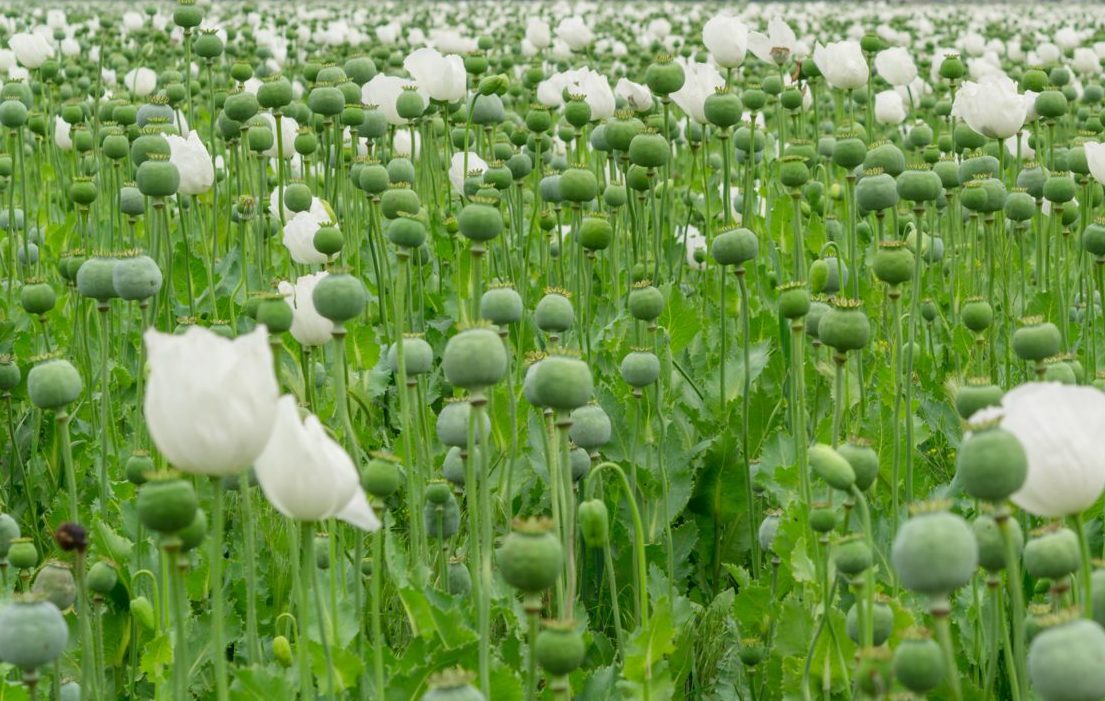The Taliban Says No To Drugs

Though there are no longer American troops in Afghanistan, the Taliban might not be done humiliating the United States.
Afghanistan’s new government is currently engaged in a massive effort to rid the country of its massive poppy fields that ultimately supply the bulk of the world’s heroin and opium. In the Washir district in southern Helmand province, Taliban fighters stood guard while a tractor destroyed poppy fields and the farmers who usually cultivate the troublesome flower watched from a distance.
The Taliban announced that it was banning the cultivation of opium poppy in early April. “All compatriots are informed from the date of the issuance of this decree, poppy cultivation is absolutely prohibited in the whole country and no one can try to cultivate the plant,” the decree, issued by Taliban head Haibatullah Akhundzada and delivered orally to the public by Administrative Deputy to the Prime Minister Mawlawi Abdul Salam Hanafi at a Ministry of Interior news conference, said. “If someone violates this, his cultivation will be destroyed and the violator will be dealt with according to Islamic Law.” Not only did Akhundzada’s decree make opium poppy cultivation illegal, but also banned using, selling, transferring, and trading heroin, wine, and other drugs.
The Taliban’s effort to crack down on opium poppy should come as little surprise.
As I wrote previously for TAC, Taliban leadership was considering efforts to ban opium poppy cultivation in August, shortly after the Taliban seized Kabul in the wake of America’s withdrawal. “We are assuring our countrymen and women and the international community, we will not have any narcotics produced,” Taliban spokesman Zabihullah Mujahid said at the time. “From now on, nobody’s going to get involved (in the heroin trade), nobody can be involved in drug smuggling.” The plans to squash Afghanistan’s opium poppy industry, however, was delayed for a better part of a year due to Afghanistan’s economic crisis, the effects of which continue to linger.
This isn’t the Taliban’s first rodeo either. The Taliban’s previous campaign against growing opium poppy before the U.S. invasion that removed them from power was wildly successful. After then-Taliban leader Mullah Mohammed Omar decided to ban the growth of opium poppy in 2000, the number of hectares of land used to grow opium poppy in Afghanistan fell from about 82,000 hectares to 8,000—a drop of more than 90 percent.
But it’ll be a bigger task than before. When Uncle Sam rolled in, the Taliban was removed from power. The ban on opium went with it. By 2003, opium cultivation had returned to pre-ban levels. A decade and a half of U.S.-backed control later, and Afghanistan’s opium industry had quadrupled in size.
If the Taliban succeeds where America failed and is able to squash the opium poppy industry in Afghanistan for the second time, it would be yet another nail in the coffin for the American empire.